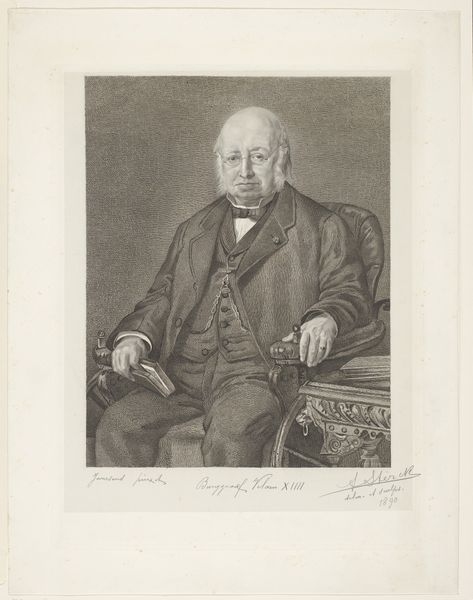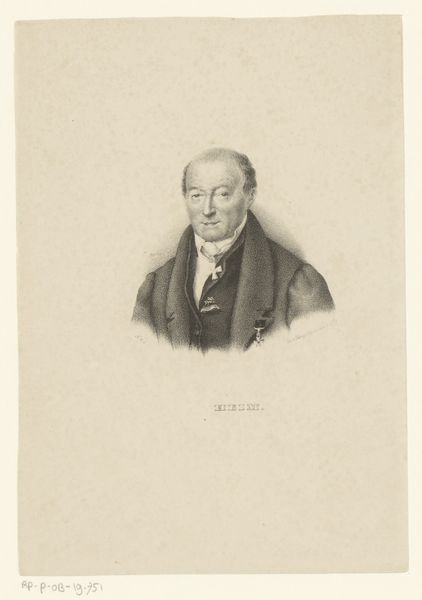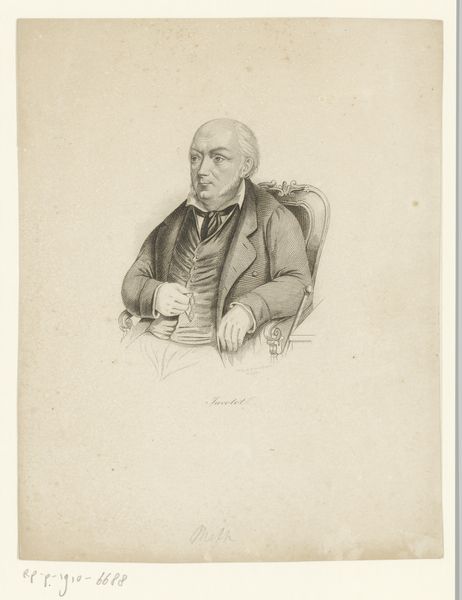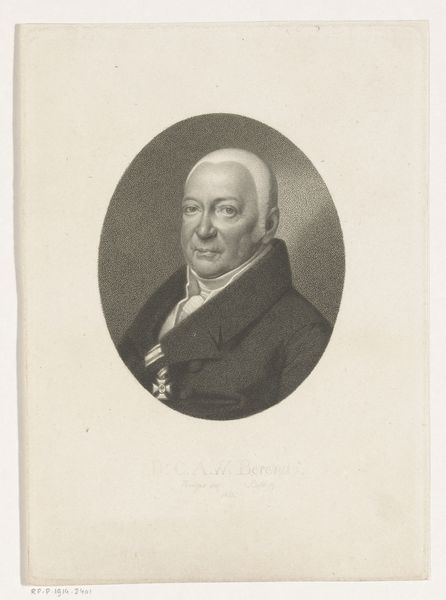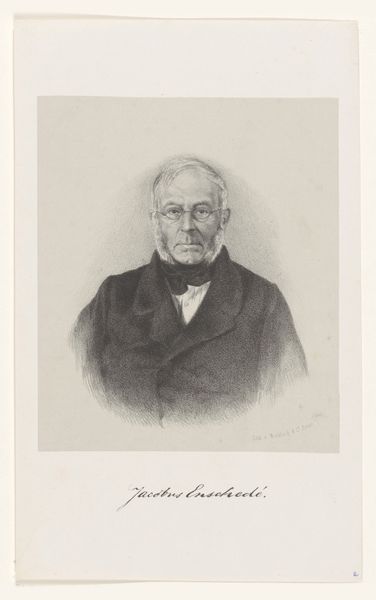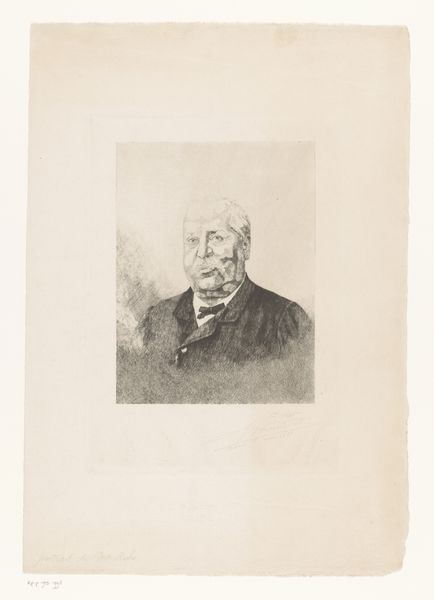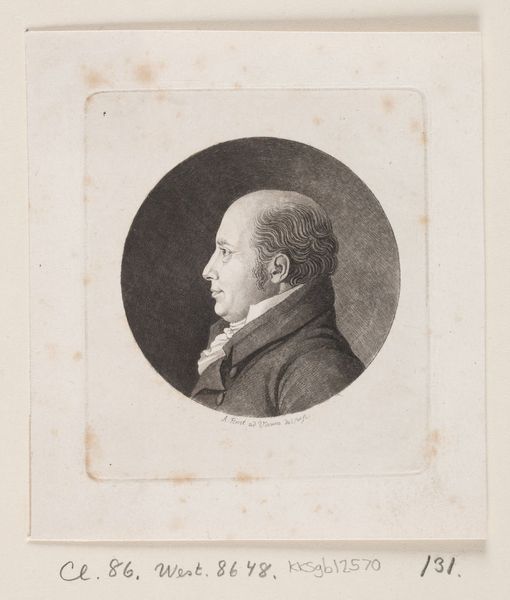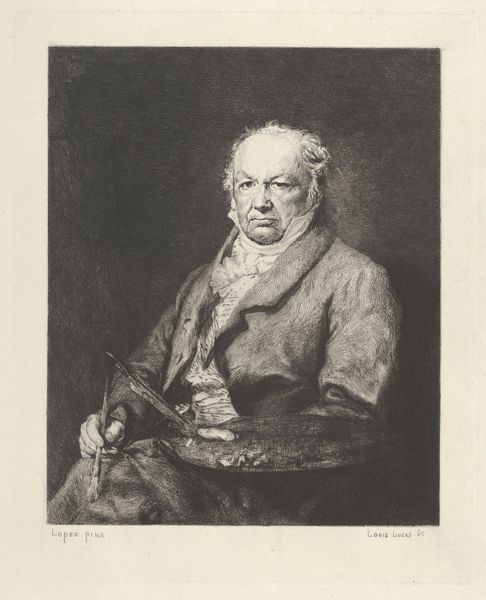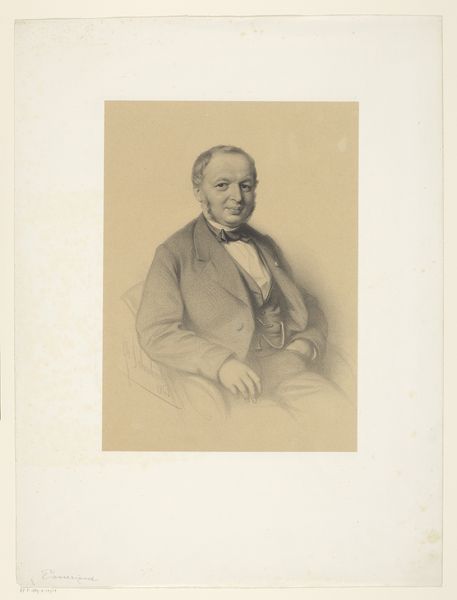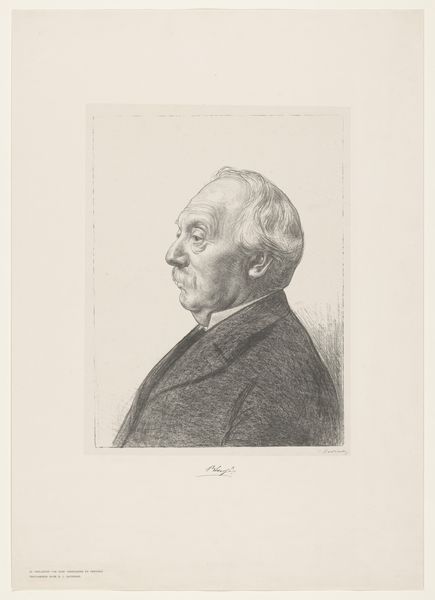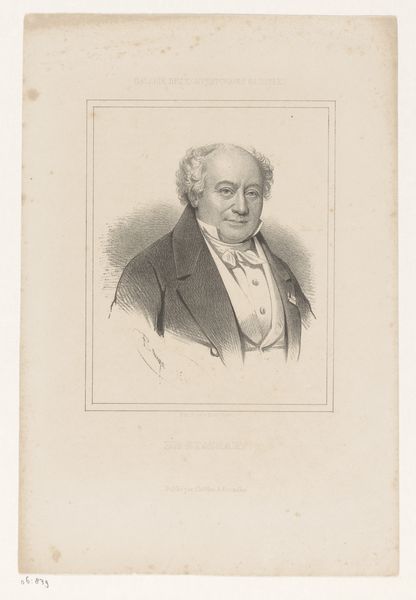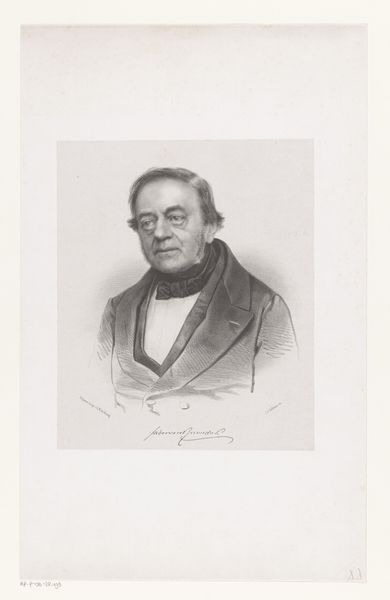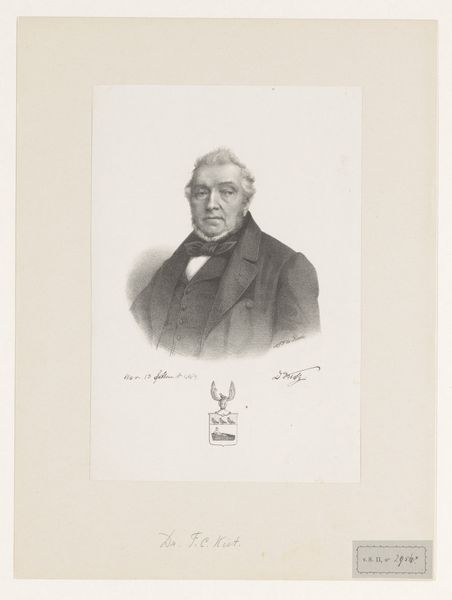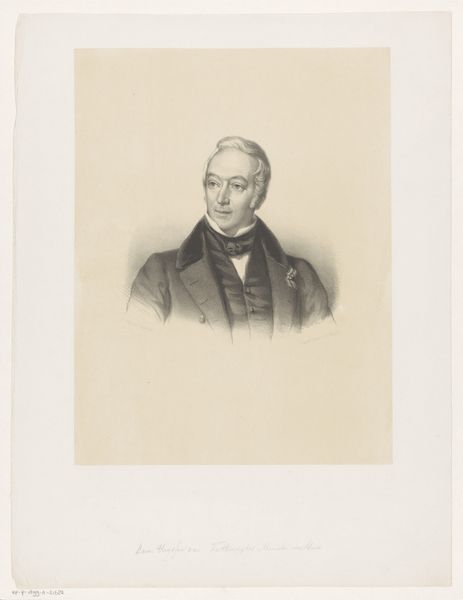
drawing, engraving
#
portrait
#
drawing
#
old engraving style
#
portrait reference
#
portrait drawing
#
engraving
#
realism
Dimensions: height 452 mm, width 315 mm
Copyright: Rijks Museum: Open Domain
Curator: Here we have Arthur Sterck’s "Portret van Stanislas Vilain XIIII," likely created between 1890 and 1896. It's an engraving, so all those intricate lines are carved into a surface… I find the result so…linear and reserved, almost brittle. Editor: It has a kind of melancholic weight to it, doesn't it? Like a photograph faded by time. All those details rendered with such meticulous labour, makes me consider the production, the class status represented... Curator: It does seem like every thread of fabric, every fold, every bit of ornamentation is dutifully recorded. What do you suppose about the actual production and social forces? Editor: The labour that was involved... I am struck by the choice of engraving. Consider that process! Think of the engraver's hand, and what the commission reveals about Vilain XIIII and his social standing... the cost and status... how the portrait then serves as an object that reinforces the values of the era! It really ties the sitter to a particular network. Curator: Absolutely. There's this careful construction of identity going on. You have this gentleman, adorned in all the markers of respectability—the suit, the watch chain, even the book held just so... It’s like a performance for posterity. Perhaps a drawing would have created more of the liveliness! But, there’s a kind of somber truthfulness here, like Sterck wasn't just depicting a man but capturing a whole worldview etched in those lines. The starkness amplifies the sense of gravitas, like staring straight into a particularly decisive century. Editor: A worldview, indeed. Everything in the engraving points toward hierarchy, and also stability, which must be produced and constantly protected. The materials and labour here serve a particular social purpose, the same as the very visible, careful dress of the portrait’s sitter. Even this sense of, as you call it, gravitas serves to reinforce power! Curator: In the end, I appreciate that Sterck captured the quiet weight of it all, the feeling of inherited responsibility etched on the face. You are so right—material and immaterial power. Editor: It makes you realize that representation itself is labor. Thanks, I never saw it like that.
Comments
No comments
Be the first to comment and join the conversation on the ultimate creative platform.
